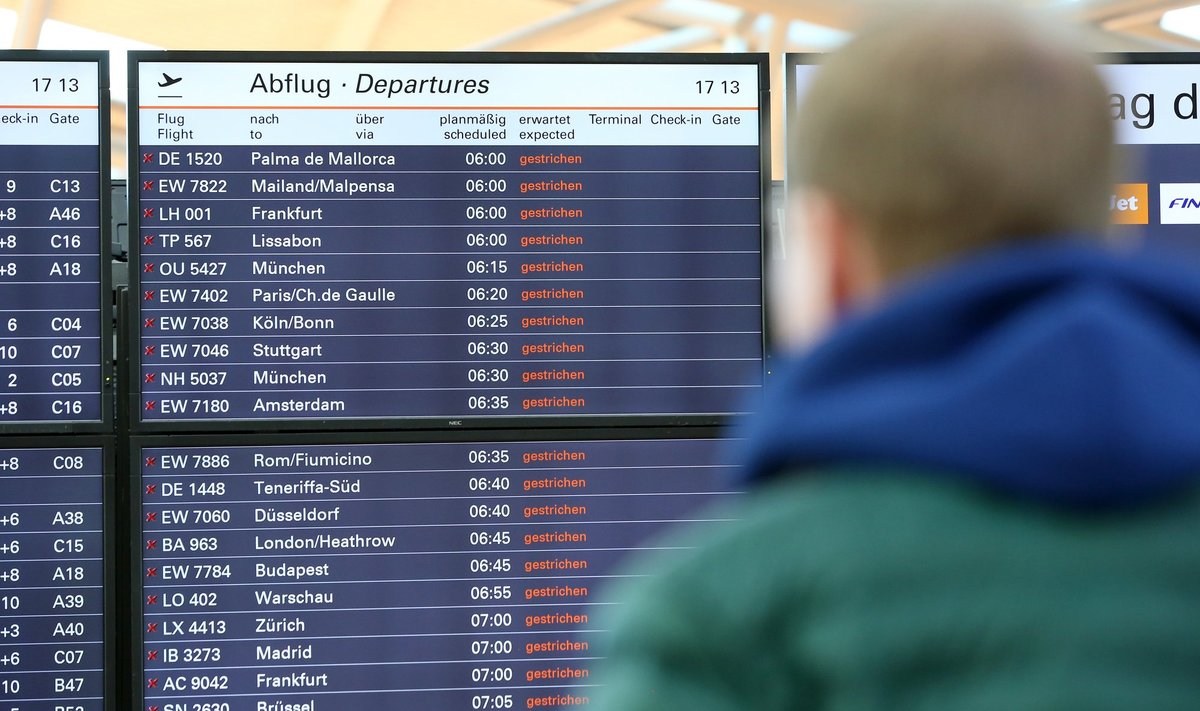Today in Germany, a major warning strike of transport workers began, organized by the railway transport union EVG in conjunction with the Verdi trade union. The strike will last 24 hours and will affect the operation of many modes of transport throughout the country.
Almost all flights at the airports of Hamburg, Hannover, Dortmund, Dresden, Dusseldorf, Leipzig, Munich, Nuremberg, Frankfurt am Main, Stuttgart, as well as Cologne-Bonn airport, have been canceled. At the same time, Berlin Airport continues to operate, but flights to the above cities have been canceled, writes Deutsche Welle.
The railway concern Deutsche Bahn also announced the suspension of long-distance trains throughout the country. At the same time, the company expects that problems with train traffic will continue on the morning of March 28. Most suburban trains will also be shut down as their operator, DB Regio, has also joined the strike.
Public transport workers strike in several states
Part of public transport has been canceled in seven regions of Germany. We are talking about Baden-Württemberg, Bavaria, Hesse, Lower Saxony, Rhineland-Palatinate, Saxony, and North Rhine-Westphalia. In the regions, there is a bus schedule in case of a strike.
The German autobahn operator will also take part in a large-scale strike. At the same time, the company dismissed concerns about the closure of the tunnels, citing planned agreements for emergency services.
At the same time, strikes organized by trade unions are almost always announced in advance – therefore, they are often not an excuse for being late and “slackening work”, according to German law.
Trade unions demand an increase of at least 500 euros per month
About 350,000 transport workers are expected to take part in the strike. The unions want to get them an increase in wages. Thus, Verdi calls for a 10.5 percent increase in employees’ wages, and not less than 500 euros per month. The EVG advocates a 12 percent increase in wages for German railway employees, but no less than 650 euros per month.
The strike will be the biggest in Germany since 1992, said Verdi CEO Frank Werneke. It takes place simultaneously with the next round of negotiations between trade unions and representatives of the German authorities, which is scheduled for March 27-29 in Potsdam.
The German Association of Land Districts spoke negatively about the idea of such a large-scale strike. According to the head of the association Reinhard Sager (Reinhard Sager), “such a show of force during ongoing negotiations is clearly beyond the scope of the goal.” And the head of the German Union of Cities and Communities, Gerd Landsberg, in an interview with Bild, admitted that to increase salaries, municipalities will have to raise garbage collection fees or property taxes, as well as reduce the budget allocated for the repair of state-owned school buildings.

